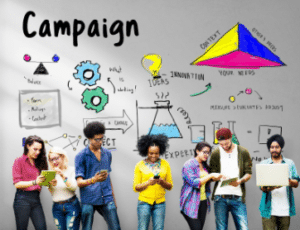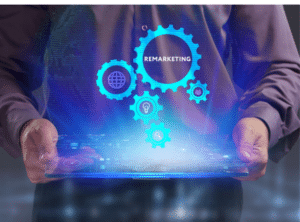Imagine waking up one morning to find your social media feeds buzzing with excitement over a brand’s latest limited-edition product drop. Your friends are posting unboxing videos, and the fear of missing out (FOMO) starts to set in. You quickly navigate to the brand’s website, only to discover the coveted item is already sold out. This is the power of ephemeral marketing – a strategic approach that capitalizes on the fear of missing out to create a sense of urgency and privilege.
In today’s fast-paced digital landscape, consumers are constantly bombarded with marketing messages from countless brands vying for their attention. Ephemeral marketing stands out by offering a unique and time-sensitive experience that taps into the psychological need for deficiency, social proof and perceived value. By creating a sense of infrequency through limited-time offers, exclusive product drops or fleeting experiences, brands can ignite a frenzy of consumer interest and drive immediate action.
FOMO involves anxiety stemming from the belief others are enjoying rewarding experiences one is missing out on. It is a powerful psychological phenomenon that significantly contributes to the success of time-sensitive campaigns. In the marketing context, it serves as a compelling motivator, prompting consumers to act swiftly to prevent the perceived loss of a valuable opportunity.
By utilizing this fear of missing out, marketers create a sense of immediacy and uniqueness around a product, service or experience. Brands tantalize consumers with the promise of something unique and fleeting, stoking their desire to be part of the exclusive group that experienced it. This tactic not only drives immediate engagement and sales but also fosters a sense of brand loyalty and advocacy among those who manage to secure the coveted offering.
The Psychology Of FOMO
FOMO often lies at the heart of effective marketing campaigns. Understanding the fundamental principles that underpin this fear is crucial for brands seeking to utilize their potential. Three key psychological principles play a significant role in the success of marketing:
- Scarcity Principle And Its Role: This principle suggests people perceive things as more valuable when they are less available. This principle is a driving force behind the fear of missing out, as consumers are more likely to act on a limited-time offer or a product with limited availability. Marketing campaigns capitalize on this principle by creating a sense of deficiency around their offerings, whether through time-limited sales, limited-edition product drops or exclusive experiences.
- Social Proof And Its Influence On Consumer Behavior: Social proof is a psychological phenomenon where people tend to conform to the actions and behaviors of others, particularly those within their social circles. In the context of dynamic promotional strategies, social proof plays a pivotal role in amplifying the fear of missing out.
- When consumers see their friends, family or influencers participating in a time-sensitive marketing campaign, they are more likely to feel compelled to join in.
- The fear of missing out on a shared experience or being left out of a social conversation can be a powerful motivator for consumers to engage with dynamic promotional strategies.
- Brands often rely on social media platforms and user-generated content to showcase the exclusivity and desirability of their ephemeral offerings, further fueling the fear of missing out.
3. Contrast Effect And Its Impact On Perceived Value: The contrast effect is a cognitive bias that influences how people perceive and evaluate things based on their comparison to surrounding stimuli. In the realm of dynamic marketing approaches, this principle is used to heighten the perceived value of limited-time offers or exclusive products.
When a product or experience is presented alongside more readily available or less exclusive offerings, its perceived value increases due to the contrast effect. Consumers perceive the limited-time or exclusive item as more desirable and valuable simply because of its deficiency or exclusivity relative to the other options.
Some real-world examples of contrast effect in ephemeral marketing include the following:
- A luxury fashion brand may release a highly limited capsule collection alongside their mainstream seasonal line, making the limited-edition pieces appear more exclusive and valuable in comparison.
- A restaurant may offer a special, one-night-only dining experience with a curated tasting menu, contrasting it with their regular à la carte offerings to heighten the perceived value and desirability of the exclusive event.
By understanding and maximizing these psychological principles, brands can create a potent cocktail of scantiness, social proof and perceived value, igniting the fear of missing out and driving consumer engagement with their dynamic campaigns.
Types Of Ephemeral Marketing Campaigns

Immerse yourself in a visual feast of ephemeral campaigns, each a unique brushstroke on the canvas of consumer engagement and excitement.
Transitory campaigns come in various forms, each designed to tap into the audience’s FOMO and create a sense of immediacy and uniqueness. These campaigns are often time-sensitive, limited in quantity or offer unique experiences that cannot be replicated. Let’s explore some of the most common types of these campaigns.
Limited-Time Offers
Limited-time offers are perhaps the most straightforward form of transient promotion. They involve presenting a special deal, discount or promotion for a limited period, creating a sense of urgency for consumers to act before the opportunity expires. Examples include flash sales, daily deals or limited-time bundles.
There are some pros and cons to this style of marketing campaign. Pros: Limited-time offers are easy to implement and can drive immediate sales and engagement. They create a sense of deficiency, encouraging impulsive purchases. Cons: Overuse of limited-time offers can lead to consumer fatigue and a decrease in perceived value. There is also a risk of cannibalizing regular sales if they are not executed carefully.
Limited-Edition Products
Limited-edition products are highly coveted by consumers due to their insufficiency and rarity. These products are typically available for a brief time or in limited quantities, creating a sense of vitality and desirability. The allure of owning something that is not widely available taps into the fear of missing out and the desire for status and individuality.
Limited-edition products can range from collector’s items to special variants of existing products. The appeal lies in its uniqueness and the ability to own something others cannot easily obtain. By creating a sense of rareness and limited availability, brands can generate buzz, drive demand and foster a sense of brand loyalty among consumers who manage to secure these coveted items.
Experiential Marketing
Experiential marketing involves creating unique, immersive experiences for consumers that are often time-sensitive or one-off opportunities. These experiences can take the form of pop-up shops, exclusive events or immersive brand activations. Examples include a fashion brand hosting a one-night-only runway show, a food brand offering a limited-time dining experience or a technology company organizing a hands-on product demo event.
Experiential marketing aims to create lasting memories and emotional connections with consumers. By offering unique and fleeting experiences, brands can tap into the fear of missing out and generate a sense of rarity. These experiences often incorporate elements of surprise, personalization and shareability, encouraging consumers to document and share their participation on social media.
Social Media Stories And Live Streams
Social media platforms have become powerful channels for momentary promotions, particularly with stories and live streams. These features capitalize on the fear of missing out by offering content that disappears after a certain period.
Brands can employ social media stories and live streams to offer exclusive behind-the-scenes glimpses, product launches or interactive experiences. The real-time nature of these features creates a sense of immediacy and exclusivity, as consumers feel compelled to tune in and participate to avoid missing out on the action. The fleeting nature of the content heightens the fear of missing out and encourages immediate engagement and sharing.
By employing these various types of campaigns, brands can tap into this powerful psychological phenomenon, creating a sense of shortage, restriction and insistence that drives consumer engagement, sales and brand loyalty.
Strategies For Effective Ephemeral Marketing

Craft compelling narratives and strategic teasers to ignite and drive action, leveraging the power of FOMO.
Momentary promotions can be a potent tool for brands seeking to create a feeling of exigency, exclusivity and drive consumer engagement. However, to truly harness their power and maximize the impact of these campaigns, brands must employ strategic and well-executed approaches. Here are some key strategies for effective promotions:
- Identifying Your Target Audience. Before launching a limited promotional campaign, it’s crucial to have a deep understanding of your target audience. This includes analyzing their demographics, psychographics, interests and behavior patterns.
- Demographics: Age, gender, location, income level, etc.
- Psychographics: Values, lifestyle, personality traits and motivations
- Interests: Hobbies, passions and topics they engage with online
- Behavior patterns: Online activities, purchase habits and social media usage
By gaining insights into these factors, brands can tailor their short-lived promotional efforts to resonate with their target audience, increasing the likelihood of sparking excitement and driving engagement.
2. Crafting A Compelling Narrative. Effective fleeting promotional campaigns go beyond mere promotion; they incorporate powerful storytelling techniques to captivate audiences. By weaving compelling narratives that include relatable characters, build suspense and employ emotional hooks, brands can forge a stronger connection with their audience. Additionally, building anticipation and curiosity is pivotal for fueling excitement. To achieve this, brands can strategically tease their ephemeral offerings through social media teasers, cryptic messages or behind-the-scenes glimpses. This gradual approach not only piques the audience’s interest but also intensifies the fear of missing out on the upcoming reveal or experience.
3. Choosing The Right Channels. The success of a campaign heavily depends on reaching the target audience through the right channels. Brands should carefully consider the platforms and mediums most effective for their desired demographic. Some of the options include social media platforms, email marketing and in-person events.
4. Determining Timing And Frequency. Timing is crucial for launching campaigns. Brands must consider consumer behavior, seasonal trends and cultural events to determine the optimal window for maximum impact. Striking the right balance between shortage and overexposure is equally essential. While infrequency creates anticipation, excessive exposure can dilute exclusivity. Brands must carefully maintain a sense of shortage and desirability without becoming too frequent or commonplace.
5. Measuring Success. Brands evaluating campaigns must establish key performance indicators (KPIs) aligned with objectives. Metrics like website traffic, social media engagement, conversion rates and sales figures serve as crucial benchmarks. Simultaneously, analyzing data from past campaigns is essential for refining future efforts. By discerning audience responses and shortcomings, brands can make data-driven decisions, optimizing strategies, messaging and targeting for maximum impact in subsequent campaigns.
By implementing these strategies, brands can effectively harness the power of temporary promotions and the fear of missing out to drive consumer engagement, foster brand loyalty and ultimately boost sales and revenue. However, it’s essential to approach such campaigns with careful planning, execution and a deep understanding of the target audience’s preferences and behavior patterns.
Ethical Considerations And Best Practices
While short-lived promotions can be an effective strategy for driving consumer engagement and sales, it’s crucial for brands to approach these campaigns with ethical considerations and best practices in mind. Failing to do so can damage consumer trust, compromise brand reputation and potentially violate legal regulations.
Transparency And Trust
Brands must be transparent about the nature of their time-sensitive promotions, clearly communicating the limited availability, timeframe or exclusivity of the offering. Deceptive practices, such as falsely inflating insufficiency or misrepresenting the restrictions of a product, can erode consumer trust and lead to backlash.
It’s essential to avoid any tactics that could be perceived as misleading or deceptive. This includes accurate representation of product availability, realistic depictions of the offering and transparent communication about the terms and conditions of any promotions or limited-time offers.
Respecting Privacy And Data Protection
Time-sensitive marketing campaigns often involve collecting and utilizing consumer data, such as email addresses, social media interactions and purchase histories. Brands must ensure they are handling this data responsibly and in compliance with relevant privacy laws and regulations, such as the General Data Protection Regulation (GDPR). Failure to do so can result in legal consequences and damage consumer trust.
Sustainability And Social Responsibility

Navigate ethical considerations and best practices in social media marketing to ensure brands maintain integrity while engaging their audience effectively.
Minimizing Waste And Environmental Impact. While time-sensitive promotional efforts can create a sense of imperativeness and rarity, brands should be mindful of the potential environmental impact of their campaigns. Limited-edition products or excessive packaging can contribute to waste and have a negative impact on sustainability efforts. Brands should explore eco-friendly alternatives and incorporate sustainable practices into their timely initiatives.
Giving Back To The Community. Brands can employ the excitement and engagement generated by these campaigns to give back to the community. This could involve partnering with charitable organizations, donating a portion of proceeds to worthy causes or creating ephemeral experiences that benefit local communities.
By prioritizing transparency, respecting consumer privacy, embracing sustainability and giving back to the community, brands can ensure that their time-sensitive promotional campaigns not only drive business success but also contribute to a more ethical and responsible marketing landscape.
The Future of Ephemeral Marketing
Looking ahead, the future of innovative promotional strategies is likely to see continued innovation and integration with emerging technologies. Augmented reality, virtual experiences and immersive digital environments may soon become the new frontier for creating exclusive and memorable promotional campaigns. Imagine stepping into a virtual world where you can experience a brand’s limited-edition product launch or attend an exclusive virtual event, all from the comfort of your own home.
As technology continues to advance, brands will have new tools and platforms at their disposal to create even more captivating and immersive experiences. The integration of cutting-edge promotional strategies with emerging technologies like artificial intelligence (AI) and machine learning could enable highly personalized and targeted campaigns, amplifying the sense of immediacy and exclusivity.
The potential impact of innovative promotional strategies extends beyond just driving sales and fostering brand loyalty. These campaigns have the power to create shared cultural moments and bring people together around mutual experiences. Exclusive concert live streams, pop-up fashion events or limited-time brand activations can become talking points, fostering connections and solidifying a brand’s place in popular culture.
As the fear of missing out continues to shape consumer behavior, brands that can masterfully harness the power of groundbreaking promotional strategies will not only capture consumer attention but also forge deeper emotional connections, cultivate brand advocacy and ultimately drive sustained success in an increasingly competitive marketplace.
Are you ready to ride the FOMO wave and unlock the power of ephemeral marketing?
If you’re looking to create a buzz, engage your audience, or foster a sense of necessity, our expertise at Three Girls Media, Inc. is tailored to maximize your innovative marketing potential, elevate your brand’s presence and make an impact on the digital landscape. Curious about how to get started? Schedule a free 30-minute consultation with us to explore the possibilities for your brand’s promotional success. Message us today at Info@ThreeGirlsMedia.com.

